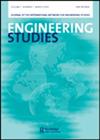工程技术人员的培养:实验室实践中本体论的形成
IF 1.3
3区 工程技术
Q2 EDUCATION, SCIENTIFIC DISCIPLINES
引用次数: 2
摘要
技术人员在日常生活中基本上是看不见的,就像他们对科学和工程的贡献一样。在这项研究中,我解决了技术人员在工程教育中的隐形问题。实验室在工程教育中扮演着核心和独特的角色,但在研究文献中,实验室技术人员在教育背景下的角色在很大程度上是缺席的。技术人员通常不被认为是讲师,即使是在有技术人员资格的项目中。我认为,在引导学生进入技术工程实践方面,应该重新考虑实验室技术人员的角色,并解决以下问题:本科实验室的技术人员做什么,他们知道什么?为了研究本科实验室中技术人员和学生之间的相互作用,采用了步行方法。结果表明,实验室技术人员对学生的技术实践具有引导、指导和支持作用。特别是,我确定了一种实践教学法,在这种教学法中,实验室技术人员展示了专业的手工技术,分享了他们熟练的实践和实践知识,并将实践与抽象的理论知识联系起来。本研究有助于了解在学术工程部门担任实验室技术员角色的工程技术人员如何引导学生技术人员进入技术工程实践。本文章由计算机程序翻译,如有差异,请以英文原文为准。
The Making of Engineering Technicians: Ontological Formation in Laboratory Practice
Technicians are largely invisible in everyday life, as are their contributions to science and engineering. In this study, I address the issue of technicians’ invisibility in engineering education. The laboratory plays a central and distinctive role in engineering education, but the role of laboratory technicians in educational contexts is largely absent from the research literature. Technicians are generally not considered to be instructors, even in programs that qualify technicians. I argue that the roles of laboratory technicians, with regard to the induction of students into technical engineering practice, should be reconsidered, and address the question: What do technicians in undergraduate laboratories do, and what do they know? The walking methodology approach was adapted in order to study interactions between technicians and students in undergraduate laboratories. The findings showed that laboratory technicians inducted, guided and supported students in technical practices. In particular, I identified a pedagogy of practice in which laboratory technicians demonstrated expert artisanal techniques, shared their skillful practice and practical knowledge, and made connections between practice and abstract theoretical knowledge. The study contributes an understanding of how engineering technicians, who occupy laboratory technician roles in academic engineering departments, induct student technicians into technical engineering practice.
求助全文
通过发布文献求助,成功后即可免费获取论文全文。
去求助
来源期刊

Engineering Studies
ENGINEERING, MULTIDISCIPLINARY-HISTORY & PHILOSOPHY OF SCIENCE
CiteScore
3.60
自引率
17.60%
发文量
12
审稿时长
>12 weeks
期刊介绍:
Engineering Studies is an interdisciplinary, international journal devoted to the scholarly study of engineers and engineering. Its mission is threefold:
1. to advance critical analysis in historical, social, cultural, political, philosophical, rhetorical, and organizational studies of engineers and engineering;
2. to help build and serve diverse communities of researchers interested in engineering studies;
3. to link scholarly work in engineering studies with broader discussions and debates about engineering education, research, practice, policy, and representation.
The editors of Engineering Studies are interested in papers that consider the following questions:
• How does this paper enhance critical understanding of engineers or engineering?
• What are the relationships among the technical and nontechnical dimensions of engineering practices, and how do these relationships change over time and from place to place?
 求助内容:
求助内容: 应助结果提醒方式:
应助结果提醒方式:


